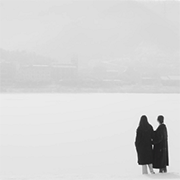|
Protocol 5 posted:A bunch of shoptalk about the auto industry is kind of outside the scope of this thread, so I'll leave it at that. I don't see why you shouldn't discuss it here. It's not like this thread approaches anything close to the activity of the Bitcoin thread, so you might as well edumacate us a bit along the way.
|
|
|
|

|
| # ? May 10, 2024 04:30 |
|
Yeah go for it, sounds quite interesting, and since it's big business in Japan it's pretty much Japanese politics anyways.
|
|
|
|
Cameron posted:It's strange how the JPY is tied to policy makers trying to make it weaker. I can't believe that a country would ever want the USA to get stronger so that it can put itself into a submissive export-based position. What is so hard to believe? Japan has had an export-oriented economy for more than a half-century now. One could argue Japan's (and the rest of the East Asian powerhouse economies) miraculous post-war growth comes from its exports. From the Japanese government's perspective, if a strong Yen is hurting such an important part of your economy it makes sense to intervene and weaken it. And it's doubtful the domestic Japanese economy can suddenly increase its consumption of goods in the near future to replace US consumption of Japanese exports. And governments intervening in currencies isn't all that unusual. In the past, countries on the gold standard would essentially hoard gold and gently caress each other over to maintain their exchange rates and benefit their exports. China is infamous now for intervening in its exchange rate. Switzerland has been battling a rush of investors looking for a "safe currency" and appreciating the hell out of the Swiss Franc. The most dramatic intervention I can think of is the 1985 Plaza Accord. It was an agreement by the US, France, the UK, West Germany, and Japan to secretly and simultaneously weaken the US dollar and strengthen the Yen and Deutschmark over concerns of trade imbalances. The effect was most dramatic for the Yen, which went from around 240 Yen per Dollar in 1985 to around 120 Yen per Dollar by 1987. More recently, the G7 economies cooperated in the immediate aftermath of the 2011 Tohoku earthquake to intervene and weaken the Yen, which had paradoxically appreciated after the earthquake. The list of currency interventions can go on and on, especially with the Yen.
|
|
|
|
Cameron posted:It's strange how the JPY is tied to policy makers trying to make it weaker. I can't believe that a country would ever want the USA to get stronger so that it can put itself into a submissive export-based position. China? Also, Japan prior to 1985?
|
|
|
|
hitension posted:China? Also, Japan prior to 1985? Yeah, I should have added "now that China is a thing" in there. What I mean to say is that I can't believe anyone would try to fight China for a share of export markets right now. Cars I could see being possible, because people still see Japanese cars as "the best" mass market cars in the world, but for anything else I can't see where Japan has the edge, besides anime. Japan prior to 1895 was 30 years ago, and a lot has changed in manufacturing and global markets since then. edit: Abe was in a car crash while going to a "give back Japanese nationals kidnapped during the cold war" rally in Tokyo. Are there any living J-nationals still in North Korea, I wonder? Teikanmi fucked around with this message at 14:03 on Apr 27, 2013 |
|
|
|
Considering that one of the defectors from the Korean War is supposedly still alive, it's not too much of a stretch to suppose that some of those kidnapped Japanese people are still around. Edit: Dresnok is probably still alive, and Jenkins is still alive though he's living in Japan now. You've also got to wonder how many random Japanese people gone missing may have been abducted that aren't officially considered so. Sheep fucked around with this message at 15:33 on Apr 27, 2013 |
|
|
|
Cameron posted:Yeah, I should have added "now that China is a thing" in there. What I mean to say is that I can't believe anyone would try to fight China for a share of export markets right now. Cars I could see being possible, because people still see Japanese cars as "the best" mass market cars in the world, but for anything else I can't see where Japan has the edge, besides anime. Japan prior to 1895 was 30 years ago, and a lot has changed in manufacturing and global markets since then. I used to contract for a commercial vehicles manufacturer that sourced a lot parts from China (mainly sheet metal, axles, etc.) so I can speak to this. See, the main attraction of sourcing from Chinese suppliers and Chinese exports in general is their ability to deliver large volume at low cost. Quality, however, leaves a great deal to be desired, with double digit defect and failure rates not being uncommon. These issues are driven by labor and safety regulations that are inconsistently enforced, so you end up with poor maintenance of equipment and line workers pulling double shifts to meet production quotas in poor working conditions. Quality could be improved, but it would raise costs and reduce output, so there isn't much motivation for it right now. At the moment, Japan and South Korea still kick the poo poo out of China in any kind of machinery that requires precision machining with narrow tolerances and specific material properties, and Japan is also a major player in pharmaceuticals, medical research, software, electronics, and chemical and materials engineering. The media tends to focus on cars and consumer electronics, but there are a variety of lower profile sectors that Japan excels in on a global level. China is certainly an economic force to reckoned with, but still have a long way to go to catch up with South Korea and Japan in terms of economic diversity and technological sophistication. Your disbelief that anyone would try to compete with China for market share is frankly baffling. Why does anyone compete with the US for market share in global markets? Because there are a range of market segments that you can target, and you may be better equipped to target and exploit some market segments more effectively than your competitors. Trying to compete with Chinese exports within the same low-end price range would be unprofitable due to cost issues, but the mid-range and high-end segments are a different story.
|
|
|
|
Cameron posted:
Apart from other potential abductees, there are a couple of other major groups of Japanese in North Korea. The first are the wives of zainichi Koreans who "returned" to North Korea after the Korean War. (I say "returned" because many were actually originally from the South, but became ideologically tied to the North while in Japan, and so decided to live there when the chance arose.) Around 2,000 Japanese wives went with their husbands to North Korea, many under the impression that a socialist paradise awaited. I'm not sure how many are still alive today, but a few have been allowed to return home for a few weeks to visit their families. The second group is the much smaller group of surviving Red Army members and their wives, who defected to the DPRK in the 1970s. I remember reading somewhere that they were extremely keen to return to Japan, even if it meant immediate imprisonment. As for other abductees - who knows. The secretive nature of the abductions events combined with the inability to investigate in North Korea means that it's extremely difficult to confirm a given case as abduction. The major citizens' group that investigates the abductions, 特定失踪者問題調査会 (Chosakai), has a list of around 800 names of people who may be abductees. Of course, every parent whose child mysteriously vanishes is going to want to believe that they were abducted, rather than went off to commit suicide or disappear for some reason. It's an issue that's doomed to eternal ambiguity, unfortunately.
|
|
|
|
Here's something to chew on. I didn't actually realize how messed up the LDPs draft of the modified constitution was. "The LDP draft, approved by the party last year, would negate the basic concept of universal human rights, which Japanese conservatives argue is a Western notion ill-suited to Japan's traditional culture and values, constitutional scholars say." http://www.reuters.com/article/2013/05/01/us-japan-politics-constitution-idUSBRE9400ZT20130501?irpc=932
|
|
|
|
LimburgLimbo posted:Here's something to chew on. I didn't actually realize how messed up the LDPs draft of the modified constitution was. Am I reading this wrong or are they arguing that certain individuals should have less rights then others in a constitutional democracy for no other reason then "our cultural heritage"? HOLY poo poo HAHAHAHAHAHAHAHA! quote:Many Japanese conservatives see the constitution, unchanged since its adoption in 1947 during the U.S.-led Allied Occupation, as an embodiment of Western-style, individualistic mores they believe eroded Japan's group-oriented traditions Wow, they're really doubling down bullshit rhetoric. "Conformation is our cultural, having unique ideas is a Western tradition" pentyne fucked around with this message at 23:54 on May 1, 2013 |
|
|
|
LimburgLimbo posted:Here's something to chew on. I didn't actually realize how messed up the LDPs draft of the modified constitution was. I found a geocities site (apparently geocities still exists in Japan) comparing the draft with the current constitution: http://www.geocities.jp/le_grand_concierge2/_geo_contents_/JaakuAmerika2/Jiminkenpo2012.htm#2012 Some highlights:
Edit: fixed my BBcode. mystes fucked around with this message at 00:34 on May 2, 2013 |
|
|
|
Yeeeeep it's super loving dumb. I mean I'm for changing Article 9, but I always knew the only people who would be interested in doing so would unfortunately not want to stop there. This is a bit worse than I imagined though. Seriously who in this day and age tries to take away universal human rights?
|
|
|
|
LimburgLimbo posted:Yeeeeep it's super loving dumb. I mean I'm for changing Article 9, but I always knew the only people who would be interested in doing so would unfortunately not want to stop there. This is a bit worse than I imagined though. The problem is the Americans didn't go far enough with their "revolution from above." They left the Emperor there and they brought the fascists back into power towards the end of the Occupation. With the fascists having a stranglehold on Japanese politics any attempts to rewrite the constitution in the name of national sovereignty (Something I am not against in principle) would automatically take the form of reaction and return to the bad old days "for the emperor." (Who, as far as I know, does not like Abe or his plans in the slightest, not that it matters)
|
|
|
|
Yeah, I'm out if this happens.
|
|
|
|
I never thought I'd hear people seriously arguing against universal human rights in any but the shittiest countries, but it happens on 2ch's news forums on occasion. And since those are apparently the same people who are in Japan's ruling party right now... edit: usually in the form of "we have to treat prisoners and Koreans and women and stuff like human beings? Even when they're being jerks to us? Thanks a lot, universal human rights!" Samurai Sanders fucked around with this message at 03:43 on May 2, 2013 |
|
|
|
It's clearly only a matter of time before Red Alert 3 becomes a reality.
|
|
|
|
MaterialConceptual posted:The problem is the Americans didn't go far enough with their "revolution from above." They left the Emperor there and they brought the fascists back into power towards the end of the Occupation. With the fascists having a stranglehold on Japanese politics any attempts to rewrite the constitution in the name of national sovereignty (Something I am not against in principle) would automatically take the form of reaction and return to the bad old days "for the emperor." (Who, as far as I know, does not like Abe or his plans in the slightest, not that it matters) I always joke that we really missed our chance by not renaming everything in the region. For example, the sea between Korea and Japan could have been renamed "Sea of McArthur".
|
|
|
|
LimburgLimbo posted:Here's something to chew on. I didn't actually realize how messed up the LDPs draft of the modified constitution was. I like how the article says it would undermine gender equality as though it already exists in Japan to be undermined. This is crazy.
|
|
|
|
CronoGamer posted:I like how the article says it would undermine gender equality as though it already exists in Japan to be undermined. This is crazy. Oh, I reckon they could make it a bit worse than present if they tried.
|
|
|
|
No doubt in my mind that they could, but calling it gender equality just amused me is all. Also, I posted a link to the article on my facebook wall and almost immediately got some teachers worrying about what this would mean for the JET program. How loving self-absorbed can you be? I need to prune my friends list.
|
|
|
|
pentyne posted:Am I reading this wrong or are they arguing that certain individuals should have less rights then others in a constitutional democracy for no other reason then "our cultural heritage"? That's already in the constitution. Colin P A Jones sums it up well but also let me point out that lots of stuff is reserved only for 'kokumin', which while the English version may translate as 'people', would be much better defined as 'Japanese person'. You'll have zero luck whatsoever arguing that foreigners, especially noncitizens, are kokumin, despite the Supreme Court tacitly acknowledging that foreigners (should) have the same human rights as citizens (except those foreigners, by definition, don't). Really it all makes about as much sense as it sounds, which is zero.
|
|
|
|
This poo poo is comically evil. Did they get Ishihara to write it?
|
|
|
|
Nothing more likely to get South Korea and China to get real close then Japan establishing a full scale military force.
|
|
|
|
CronoGamer posted:No doubt in my mind that they could, but calling it gender equality just amused me is all. Well it's kind of their job. If your job was at risk because some xenophobic shithead was looking to "redefine" your rights I'm sure you'd be pretty worried too.
|
|
|
|
This is from Wikipedia so I can't confirm its veracity butWiki posted:
How much of a chance is there of this taking place? It really sounds like Alternate History stuff. Is there a provision for Yuriko Omega and transforming mecha airplanes in here somewhere?
|
|
|
|
Sheep posted:That's already in the constitution. Colin P A Jones sums it up well but also let me point out that lots of stuff is reserved only for 'kokumin', which while the English version may translate as 'people', would be much better defined as 'Japanese person'. You'll have zero luck whatsoever arguing that foreigners, especially noncitizens, are kokumin, despite the Supreme Court tacitly acknowledging that foreigners (should) have the same human rights as citizens (except those foreigners, by definition, don't). I don't know what point you're trying to make, but as far I can tell, the only argument in that opinion piece is that non-citizens lack certain constitutional rights, which is trivially true. Constitutional rights and human rights are not the same thing at all and are, in general, only loosely related. Of course non-citizens have no right to remain in Japan, that is not in any way an issue of human rights (except maybe if you're talking about convention refugees) it's not unique to Japan. That's pretty universal. Also, of course non-citizens can't vote. That's what "citizen" means, right? Maybe I'm not clear on the argument here. You are allowed to vote if you acquire citizenship, right? Also, in re the Imperial Family, to my knowledge Queen Elizabeth is also not a citizen of a country. I certainly don't think she votes or would be allowed to do so. The issue with Zainichi Koreans is, to my mind, completely different and absolutely offensive. I'm very unclear about what the specific proposed changes to the constitution are. I don't know what the jurisprudence is, but what does "human rights" mean in the context of Japanese constitutional law? I guess it's unlikely that anyone here would know that. Gleri fucked around with this message at 10:40 on May 2, 2013 |
|
|
|
Protocol 5 posted:This poo poo is comically evil. Did they get Ishihara to write it? If you ever wanted to know just how radical you can be yet still be an elected official in Japan, this photograph should sum it up nicely:  That's Ishihara, former governor of Tokyo and career politician, with Yukio Mishima, the guy who stormed a JSDF office back in the 70s, tried to get them to rebel, perform a coup d'etat, and reinstall the emperor, and then committed seppuku when they refused to do so. So yeah the voters here saw nothing wrong with electing this guy's close friend as governor of their capital for a decade, to say nothing of his long career in parliament and ridiculous views in his own right. Gleri posted:I don't know what point you're trying to make, but as far I can tell, the only argument in that opinion piece is that non-citizens lack certain constitutional rights, which is trivially true. Constitutional rights and human rights are not the same thing at all and are, in general, only loosely related. Of course non-citizens have no right to remain in Japan, that is not in any way an issue of human rights (except maybe if you're talking about convention refugees) it's not unique to Japan. That's pretty universal. Also, of course non-citizens can't vote. That's what "citizen" means, right? Maybe I'm not clear on the argument here. You are allowed to vote if you acquire citizenship, right? Also, in re the Imperial Family, to my knowledge Queen Elizabeth is also not a citizen of a country. I certainly don't think she votes or would be allowed to do so. My main point, to quote the article is: "[This] has resulted in a Constitution that seems schizophrenic insofar as it speaks of defining equality and “fundamental human rights” as being conditioned on nationality rather than being human.". Couple that with members of the judiciary being taught that foreigners have no rights. Sheep fucked around with this message at 09:49 on May 2, 2013 |
|
|
|
Sheep posted:
He's also a pretty important cultural figure. I had to read a bunch of his plays and other works in college. I forgot about that weird coup thing. Abe's Restoration of Sovereignty Day is in the news in China. Apparently Abe said "Tenno heika banzai banzai banzai kill all the Chinese banzai banzai banzai" and now China is really mad about this. SCMP posted:Japan’s hawkish prime minister, Shinzo Abe, has apparently upset China by attending a Restoration of Sovereignty Day ceremony last week, the first time the country marked the anniversary of the day it regained sovereignty after its defeat in the second world war.
|
|
|
|
To be fair, we do banzai at literally every work party here, among other occasions. It's just 万歳 and has almost identical phrases in Korean (만세 - manse) and Chinese (萬歲/万岁). I'm under the impression that they do the same cheer thing with manse in Korea. The Wikipedia page covers it pretty well. It's certainly bad taste for the PM to be saying 天皇陛下万歳 at official work functions but I wouldn't call it an outrage or anything. Sheep fucked around with this message at 10:16 on May 2, 2013 |
|
|
|
Yeah I thought it was basically nothing. 萬歲 in Chinese means basically "woohoo!" in Homer Simpson fashion. In the Chinese news report, the journalist goes out of his way to make sure he says the whole phrase, including tianhuang bixia, which is tenno heika in Chinese, kinda weird that they didn't leave it in Japanese to sound more menacing, each time he has to mention it.
|
|
|
|
quote:Tenno heika banzai, or “long live the emperor”, was commonly chanted by Japanese soldiers in the second world war, said CCTV This is the main reason. Japanese saying 'long live the emperor' simply has very negative cultural connotation in China. It's like Sieg Heil, which literally means 'hail victory', but you still wouldn't want to say it out loud nowadays, would you.
|
|
|
|
Sheep posted:To be fair, we do banzai at literally every work party here, among other occasions. It's just 万歳 and has almost identical phrases in Korean (만세 - manse) and Chinese (萬歲/万岁). I'm under the impression that they do the same cheer thing with manse in Korea. Also, does anybody have something that more comprehensively outlines the implications of LDP's proposed constitution?
|
|
|
|
People with a weird royalty fetish tend to use it more often. Arguably it's no more offensive than saying "God save the Queen," but since the war there has been a trend to deemphasize the imperial family except for ceremonial occasions and ditch stuff like Kimigayo. The previous and current emperors were and are totally fine with this, and have tried to avoid politics and even media appearances. Right wing nationalist dickheads are particularly enamored with the concept of the emperor despite the actual individual's opposition to being thrust into a position he has gone great lengths to avoid.
|
|
|
|
Sheep posted:My main point, to quote the article is: "[This] has resulted in a Constitution that seems schizophrenic insofar as it speaks of defining equality and “fundamental human rights” as being conditioned on nationality rather than being human.". But, what I'm asking is what "human rights" beyond the right to enter and remain in Japan and the right to vote are denied to foreigners? Those rights are denied to foreigners in most countries, excepting unusual circumstances. Sure, the stuff that Abe is saying, or the things that are being attributed to some members of the LDP, sounds bad, but I don't know what substantive difference any of it will make. Human rights per se are not ordinarily actionable legal rights, you need more content than that. So, the right to free speech could be actionable and human rights could be interpreted to include the right to free speech, but not that's not necessarily the case. Amending Article 9, which seems to be the most prominent, would be pretty meaningless. Well, the political symbolism of it runs deep, but from a pure legal perspective it seems meaningless. Japan has an army right now, a rather large one in fact. Also, Article 9 is largely cosmetic anyway, so far as I am aware, given that it is not enforceable. At least, I don't think that there has been a successful lawsuit against the government under Article 9. If you can't sue under something, it is legally meaningless; "no right without a remedy". And, I don't think a court would or really could enforce Article 9. I don't think if Japan were to build a nuclear bomb, for instance, that a court would enjoin the construction or seize the bomb or anything. I can't find any instances of that. There's a bunch of people here who know modern Japanese history way better than I do, though. And, with respect to the prosecutor in the story you linked, (a) he's a prosecutor, not a judge, (b) he lost his job and the case was thrown out due to the treatment of the accused (which is the system working), and (c) what prosecutors are told in training has no relevance to actual constitutional rights. Rights were enforced by the court. Gleri fucked around with this message at 12:09 on May 2, 2013 |
|
|
|
Gleri posted:But, what I'm asking is what "human rights" beyond the right to enter and remain in Japan and the right to vote are denied to foreigners? quote:And, with respect to the prosecutor in the story you linked, (a) he's a prosecutor, not a judge, (b) he lost his job and the case was thrown out due to the treatment of the accused (which is the system working), and (c) what prosecutors are told in training has no relevance to actual constitutional rights. Rights were enforced by the court. (a) nobody said he was a judge, simply a member of the judiciary. (b) it's more likely that he lost his job because he shamed the department and lost the case, but you can't tell why from what he said (see below). (c) I'd argue that what prosecutors are taught is incredibly relevant, given that many judges get to where they are by being public prosecutors. That said I'd be fine with agreeing to disagree on this since we're getting off the topic of the constitution/rights. quote:元組合長は背任容疑で起訴されたが、自白調書の任意性が否定されて無罪となった。その結果、市川氏は厳重注意処分を受け、検事を辞職することになった。 Sheep fucked around with this message at 12:53 on May 2, 2013 |
|
|
|
Sheep posted:Exactly. You can't really be sure because it's never been made clear - we know which rights citizens have, but which rights noncitizens (don't) have has been left in limbo. This is fair point and a problem well outside the constitutional context. In part because litigation is relatively rare in Japan (but also just exceptionally vague Japanese legal drafting) it seems like relatively large areas of the law are poorly understood and have never, or very rarely, been litigated. That seems to increase the incentive, in civil matters at least, to settle everything out of court to avoid having to deal with ill-defined laws. Say what you will about litigious societies, they create clear and well-defined legal rights. You're right to point out the serious issues with the criminal law system in Japan, I'm not going to argue that. I'm just being pedantic.
|
|
|
|
I'm just getting at the point that strictly reading the constitution, human rights aren't enjoyed by humans, but citizens. What constitutes human rights here is an entirely different topic, though I'll note that the definition of human rights in Japan has been shown to me to be something different from what we'd expect in the west. And you're entirely correct, lots of the laws haven't ever been challenged in court, and are incredibly murky to begin with - just look at the labor standards law, for example. Even after lots of precedent has been established, there's still so much left up in the air on such a fundamental topic. I will be the first to admit that I am often probably too critical of Japan, but I figure that's better than not being critical enough, especially the way things are going lately. Sheep fucked around with this message at 14:23 on May 2, 2013 |
|
|
|
Huh, according to an NHK poll, 42% of people are for revising the constitution and only 16% are against. But, a couple days ago, TBS had numbers from their own poll specifically about changing Article 96 (unlike NHK they didn't explain how they conducted it, though) a day or two ago, and they had only like 30% for it and something like 40-50% against it. I'm not sure it's really helpful for NHK to just go around asking people, "Do you think the constitution should be revised?" or whatever they must be saying, since it confirms the idea that the debate is just about some sort of general need to start talking about improving the constitution, like Abe has claimed as though he doesn't already have a whole new lovely constitution lined up.
|
|
|
|
Do you have links to those polls or were they on TV? I can't see anything on NHK's site. Also I'm about to (hopefully) crash for the night so I'll wish you all a 1 and a half hour early happy (and totally unironic) Constitution Memorial Day. Sheep fucked around with this message at 14:29 on May 2, 2013 |
|
|
|

|
| # ? May 10, 2024 04:30 |
|
Sheep posted:Do you have links to those polls or were they on TV? I can't see anything on NHK's site. Ninja edit: I found a link for the NHK poll: http://www3.nhk.or.jp/news/html/20130502/k10014338361000.html Edit: I can't find information on the TBS one on the web, but a Sankei/FNN poll has 45% against and 42% for revising Article 96: http://www.asyura2.com/09/kenpo3/msg/391.html Edit 2: Someone watching News23 said that they gave 30% in favor of revising Article 96 and 46% against, but I can't find any actual information on the poll or how it was conducted. Edit 3: The Asahi Shimbun did another poll and got 38% in favor of revising Article 96 and 54% opposed. mystes fucked around with this message at 15:09 on May 2, 2013 |
|
|




















